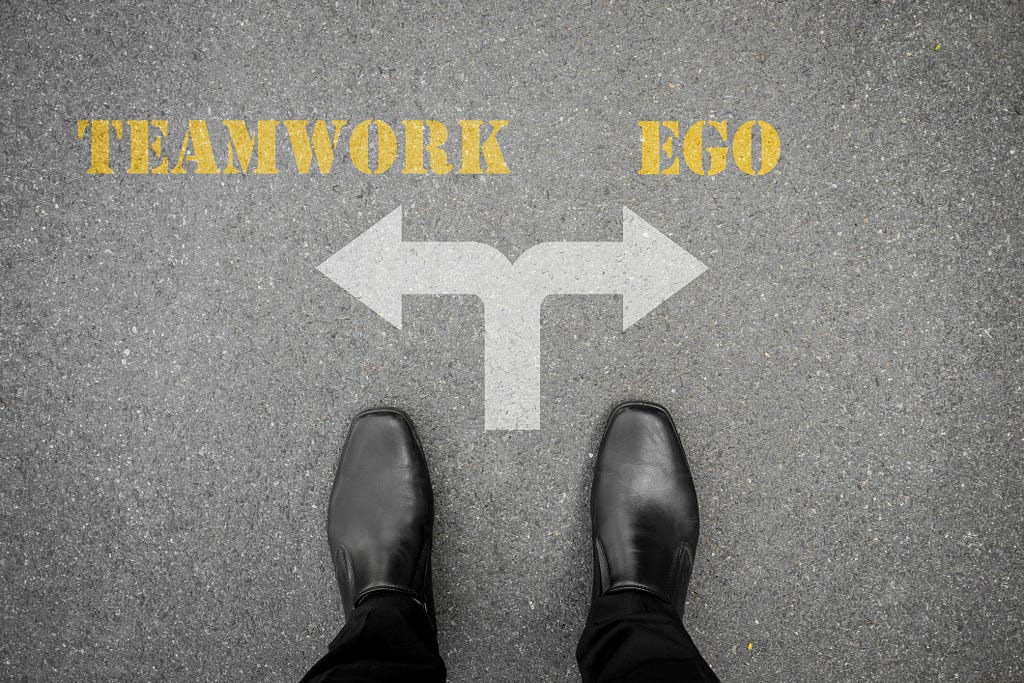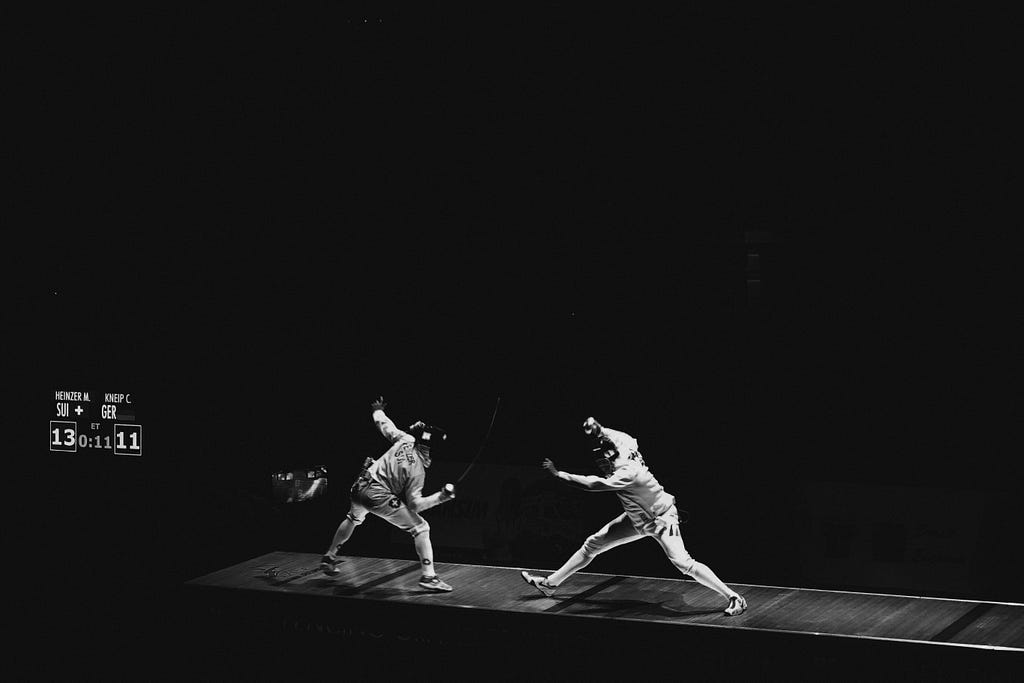Egoless Innovation


Ideas are not personal
I worked with an executive coach for about a year recently. One of the many insights she gave me was that people come into a situation with one of three intents: A. To win or be right, B. For everyone to get along, and C. To get the best outcome. And that “most” people are in A or B. I hope it goes without saying that to deliver the most innovative outcomes, you need to be in C. I wrote recently about the necessity of conflict when innovating, and how hard it is for most people (including me). This was a very tactical blog, with a call to enter into collaboration (the ‘C’ mindset) and suggestions for how to do it. But I find it is far more effective to set an intention than to use specific tools. You don’t have to remember the words you are supposed to say because they will just come out. And perhaps more importantly, you will be authentically entering into collaboration as opposed to a “fake it til you make it” approach. We all recognize when someone is not being genuine, and whether we acknowledge it or not, it’s presence will erode trust. So this article is about setting the intention of egoless innovation.

Wait… You thought I wanted you to fail?
This A/B/C concept was a revelation to me. It changed every meeting for me when I was aware enough to think about it. I have lived my entire adult life with the core assumption that when I am collaborating with people, ideas are not personal. If I challenge your idea, this has nothing to do with what I think of you as a person. I am not challenging your competence, invalidating your values, nor making you wrong. I am trying to get to the best version of the idea because anything less is a waste of our collective (precious, very expensive) time. This is the essence of what it means to be in the C mindset. But often, my quest (typically in the form of questions) for the best outcome was met with defense or frustration and I struggled with this for years. For those not in C, it feels like I am working really hard to trip them up or create conflict. That I want them to fail or like to argue. Ugh. So not my intent.

I almost got my MS in Organization Development recently as well (more on that some other time maybe). This topic of ideas being personal came up in our first semester. My professor insisted that “ideas ARE personal”. I argued the point (of course) and we agreed to disagree. In semester two it came up again and I tried really hard to get on board. I’m wrong, I thought, I need to accept that ideas are personal. I need to change. At the time I was in a highly toxic organization and my challenging ideas was unwelcome to the point where I started to shut down. I think that I briefly “accepted” this notion because trying to live my truth was causing me too much pain. Having been out of that organization for 7 months now, I’m back to square 1 — ideas are not personal (sorry, professor) and where we continue to cling to the notion that they are, innovation will slow to a crawl if not stop altogether.
“Your” idea? Hmmm…
How can I be so sure? Well first of all, ideas are not the hard part. We all have them all the time and many of them overlap with each other or are even exactly the same. They evolve through conversation to the point where it’s hard to know who came up with a given idea in the first place. In fact no “one” did. What we are actually talking about isn’t the personal or impersonal nature of ideas, but the situation where a person presenting/advocating for an idea starts to attach his self-worth to the success of the idea. He starts to worry that if people are asking questions about it or challenging its validity, then he is wrong/incompetent/didn’t do his homework and therefore is at risk in some way (job security, status, promotability…). There is a kernel of truth to that certainly, and is one of the reasons I teach my PM’s and PM students that you need to be your feature’s worst critic in addition to its primary advocate. But in that moment, defense backfires. This is where that mindset shift comes in. PM’s are often in that hot seat (and PM leaders are often the challengers), so we are well positioned to model the egoless innovation mindset.
The mindset in action
I interviewed a PM a couple years ago who submitted a link to an overview of a feature he PM’ed at his last company (a very good thing to do, BTW). He sat down in front of me, the person who would be his boss’s boss’s boss and I said to him seriously “I looked at your feature. I’d like to tell you what’s wrong with it.” He visibly perked up, smiled and said “Great! Please do!” Wow. I hired him and he is an excellent PM. He already had the mindset. He wasn’t defensive about his feature even in a high pressure situation like an interview. He was excited about the possibility of improvement.
Egoless innovation mindset means choosing to see challenge as a gift to the innovative outcome which the idea hopes to someday become
When the idea you are advocating for (which again, is not “yours”) gets challenged, egoless innovation mindset means choosing to see the challenge as a gift to the innovative outcome which the idea hopes to someday become. It means looking objectively at the input, responding to it authentically, saying “wow, good point, I’m going to take that back to the team” if it was a point you hadn’t considered and saying “yes, we thought of that and…” if you have. It means you don’t get flustered by questions or negative comments because you are focused on achieving the best outcomes, not your own status. If you can embody this, you will be helping move the culture towards more and more innovation occuring with less and less friction. And you will be more successful.

Hold the thought
How do you do this? By simply holding the thought in your mind. Meditate on it. Day in and day out. Ideas are not personal. Ideas are not personal. Ideas are not personal. I know this sounds a bit strange. I can only ask that you take a leap of faith and try it. It probably won’t happen over night. You will still get attached and defensive, but you’ll notice it sooner and sooner the more you focus on the intention. Right after the meeting, during the meeting, then at the moment the challenge occurs. And when that last one happens, you’ll respond differently and change the course of your team and your products. Simple, right?
Good luck and happy innovating!
Egoless Innovation was originally published in ProductCoalition.com on Medium, where people are continuing the conversation by highlighting and responding to this story.
